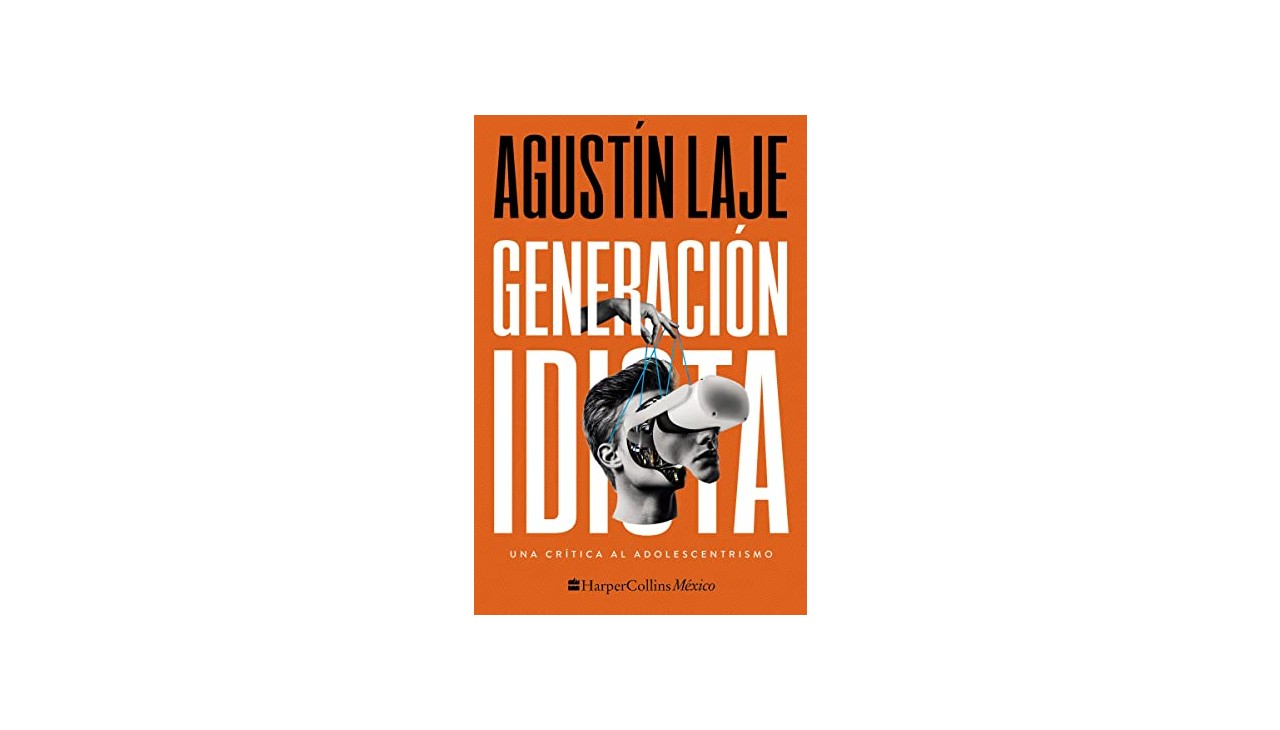
Are we a society of adults behaving like teenagers?
In his latest book, Argentine far-right writer Agustín Laje criticizes the rise of the adolescent mentality in our society and its impact on politics and family
In March 2022, Argentine far-right political scientist and lecturer Agustin Laje published The Culture Battle: Critical Reflections for a New Right — a manifesto that "informs, encourages and empowers the 'cultural guerrillas' not to give up in the battle that continues to harm our families and society in general."
Considered one of the main Latin American promoters of the far-right conspiracy theory called "cultural Marxism," Laje, who is also anti-abortion, anti-euthanasia and anti-feminism, made the book a bestseller. One year later, Laje comes back with Generación Idiota (Idiot Generation), his controversial third book, already among the top 10 bestsellers on Amazon Mexico.
In Generación Idiota, Laje explores the disappearance of the intergenerational society and the rise of the adolescent mentality, which he says has caused great damage to politics and society.
According to the right-wing political scientist, who is currently on a book tour in Latin America, he expounds the theory that societies have ages, stages that characterize them.
"There are societies that especially value accumulated knowledge, experience, in which the old have a very important role at a social and political level. These are the traditional societies," he explained in a recent virtual presentation from Bogota, Colombia.
From the end of the 17th century and the beginning of the 18th century, the old man gave way to the adult as an essential figure in society.
"For example, the philosopher Kant defines the Enlightenment as a way out of the minority of age.(...) The adult is the protagonist of the modern world," he concludes.
"And who is the protagonist of the postmodern world?" asks Laje. He answers himself: "The adolescent."
For that reason, he clarifies, his book is defined as a critique of adolescentcentrism.
RELATED CONTENT
"Topics such as sex, fashion and other adult topics enter too quickly into the world of the teenager. We have children exploited by the world of fashion and show business, children who use drugs and commit crimes... they have typical problems of the adult world," he says. We have reached a point where "children are aging faster than at any other time and adults are desperate to get younger."
As a result, according to Laje, we have more and more adults making fools of themselves, trapped in a kind of adolescent-centric parody.
The author, who has also presented his book in Ohio and Miami (Laje has a loyal 'right-wing' following of Cuban exiles) hopes to attract right-wing sympathizers and the 'traditional' public that sympathizes with his ideas that are so critical of the frivolity of this new 'idiot' adolescent subjected to fashion and show business, the digital world, and trends... among others.
{"preview_thumbnail":"/sites/default/files/styles/video_embed_wysiwyg_preview/public/video_thumbnails/69sBbeR6E8U.jpg?itok=dpD0LlM7","video_url":"https://www.youtube.com/watch?v=69sBbeR6E8U","settings":{"responsive":1,"width":"854","height":"480","autoplay":1},"settings_summary":["Embedded Video (Responsive, autoplaying)."]}
In the book, Laje also criticizes how politics itself has become adolescent-centric.
"Drinking from the wellspring of idiocy, our society today appreciates more a ridiculous TikTok dance of the candidate of the day than the knowledge of his political program of government," he writes in the book's introduction. He also criticizes the State, which he calls the 'nanny State,' for wanting to make use of this adolescent adult to subtract individual liberties from the "poor adolescent-centric citizen."
Finally, Laje offers formulas on how to recover power in the family when the youngest members of the family are left, in their education and socialization, at the mercy of the state and the multimedia cultural devices that seek to replace the role of the father and mother.
"The family is in crisis, but it is a self-inflicted crisis, they have responsibility for what is happening," he says.











LEAVE A COMMENT:
Join the discussion! Leave a comment.